Currently, the private economic sector in Vietnam is becoming the most populous sector, making the largest contribution to the Vietnamese economy. Assessing the role of the private economic sector, in the article " Private economic development - Leverage for a prosperous Vietnam", General Secretary To Lam set out a strategic vision for 2030, the private economy is expected to contribute 70% of GDP, with many enterprises having the capacity to compete globally, mastering technology and deeply integrating into the international value chain.
Accompanying the development of the private economic sector, female entrepreneurs are overcoming many barriers to enter a new era with the country. Regarding this content, Ms. Bui Thi Ninh, Deputy Director of the Vietnam Federation of Commerce and Industry, Ho Chi Minh City Branch - VCCI-HCM had a discussion with PNVN.
+ Could you share your views on the role of women in the Vietnamese private economy today? Do women really play an important role or are they still facing many barriers and prejudices?

With over 20 years of experience, Ms. Bui Thi Ninh is a key expert in labor relations and sustainable development in Vietnam, working at various levels, from policy making to on-the-ground advocacy.
Ms. Bui Thi Ninh: Women are playing a very important role in the Vietnamese private economic sector. They are not only workers but also business founders and leaders.
According to the Mastercard Index of Women Entrepreneurs (MIWE 2023), Vietnam ranks 7th in the world in terms of female entrepreneurs, with 26.5% of businesses owned by women - the highest in the ASEAN region.
However, women still face many systemic and cultural barriers. Gender stereotypes, double standards in assessing competence, and social pressure to “fulfill family responsibilities” make women’s career paths more difficult than men’s. They do not lack competence, but rather lack opportunities for recognition and adequate support.
+ What factors are affecting the development of Vietnamese female entrepreneurs, please share?
Ms. Bui Thi Ninh: In my opinion, the current business environment still has three major barriers for women.
First of all, there are socio-cultural barriers, women often have to shoulder a "dual role" - both taking on business administration work and maintaining the role of family care. This significantly reduces the time and resources they have to invest in personal and business development.
The second barrier is access to resources. According to a survey by IFC and VCCI (2021), only about 37% of female entrepreneurs have access to bank loans, compared to 47% of men. They also face more difficulties in accessing technology and professional advice.
The third barrier is the lack of a support ecosystem. Startup or innovation training programs often do not integrate gender factors, leading to women being "invisible" in support policies.
+ So, compared to other countries, especially those in the ASEAN region, what is the position of Vietnamese female entrepreneurs, Madam?
Ms. Bui Thi Ninh: In terms of the rate of female business owners, Vietnam is making remarkable achievements compared to the regional average. Data from the GEM (Global Entrepreneurship Monitor) Report 2022/2023 shows that: This rate in Vietnam is 26.5%; in Thailand: 23.4%; in Malaysia: 20.3% and in Indonesia: 21.1%.
However, the clear difference lies in the quality of participation. While women in Singapore and Malaysia are present in strategic economic sectors such as high-tech, financial services, and global logistics, in Vietnam, the majority of female businesses still operate in traditional sectors such as retail, food, and personal care services - which have low profit margins and few opportunities for expansion.

Most female businesses still operate in traditional industries such as retail, food, and personal care services. Photo: PVH
+ From the information you just shared, can you suggest some solutions for women to participate more strongly in the private economic sector?
Ms. Bui Thi Ninh: To promote women's potential in the private economy, we believe that it is necessary to implement synchronous solutions, including:
First of all, it is necessary to develop microfinance and preferential credit programs specifically for women-owned businesses, especially in the fields of agriculture, innovation and green transformation. Inclusive finance models for women have been successfully applied in many countries such as the Philippines and Canada.
The second is to develop women in business mentorship networks at the regional and national levels to support sharing of experiences, strategies and market connections.
Third, incorporate gender equality into national startup policies, including the National Startup Support Program to 2025 (Decision 188/QD-TTg) and innovation programs.
+ In your opinion, what changes in policy, training or support for female entrepreneurs need to be improved to encourage their development?
Ms. Bui Thi Ninh: I think there need to be necessary changes in policy, training and support to support female entrepreneurs in the private economic sector.
There are three policy directions that need to be improved: Institutionalizing incentives for women-owned businesses. For example, prioritizing access to innovation funds, green credit packages or gender-equitable bidding mechanisms. Designing training programs that are suitable for the actual conditions of female entrepreneurs, with high flexibility in time, in-depth content and close links to the market. Supporting localities to establish a "one-stop" women's business support center - providing legal services, financial advice, market connections and soft skills training.
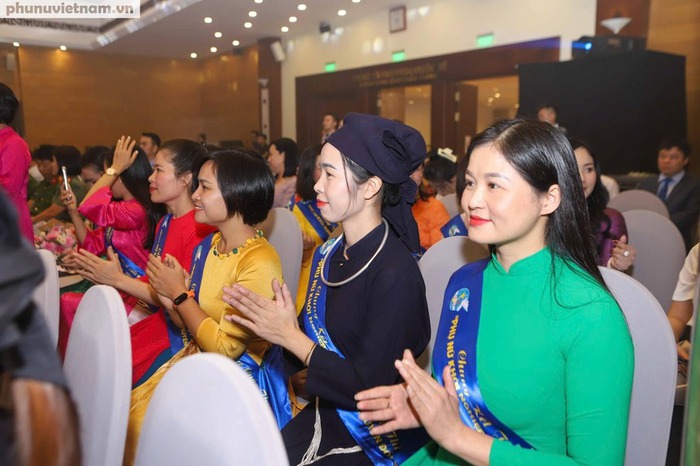
More and more women are confident in starting businesses and developing the economy. Photo: PVH
Always accompanying the business community, including the team of female entrepreneurs, the Vietnam Federation of Commerce and Industry and VCCI-HCM always consider supporting female entrepreneurs as one of the strategic focuses. Over the years, we have organized many in-depth training programs on business administration, digital transformation, personal branding and capital raising. We also connect female businesses with international trade networks, especially through forums with the EU, Japan and Korea.
At the same time, we are also actively working with development organizations to build a policy framework to promote women's businesses and integrate gender into support programs for small and medium enterprises.
+ What role do you expect Vietnamese female entrepreneurs to play in the new era of the economy, contributing to the country's sustainable development goals?
Ms. Bui Thi Ninh: I believe that in the era of digital transformation and green transformation, Vietnamese female entrepreneurs will become trendsetters - not only operating businesses effectively but also creating sustainable values for the community.
Women are more holistic, persistent, risk-aware and often associate business activities with social responsibility. These are qualities that are especially important in the current context - when businesses are not only aiming for profit, but also have to harmonize with national sustainable development goals.
With the right policies and timely support, I expect the female entrepreneur community to become an important driving force - contributing to inclusive growth and building a humane, equitable and creative economy for Vietnam.
+ Thank you very much!
Source: https://phunuvietnam.vn/nu-doanh-nhan-viet-nam-vuot-qua-rao-can-de-cung-dat-nuoc-buoc-vao-ky-nguyen-moi-2025033016023906.htm






![[Photo] Prime Minister Pham Minh Chinh chairs conference on anti-smuggling, trade fraud, and counterfeit goods](https://vphoto.vietnam.vn/thumb/1200x675/vietnam/resource/IMAGE/2025/5/14/6cd67667e99e4248b7d4f587fd21e37c)



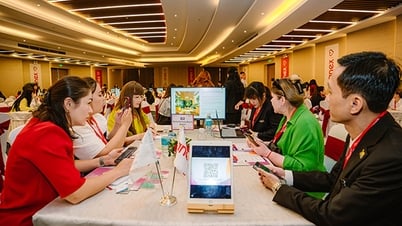




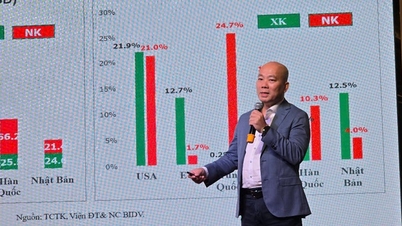






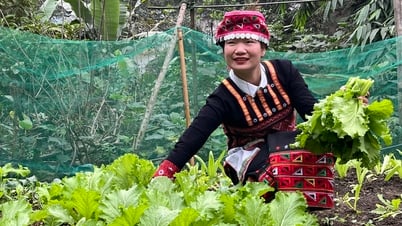




























































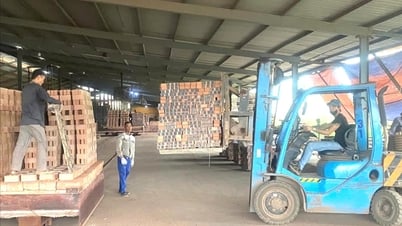












Comment (0)